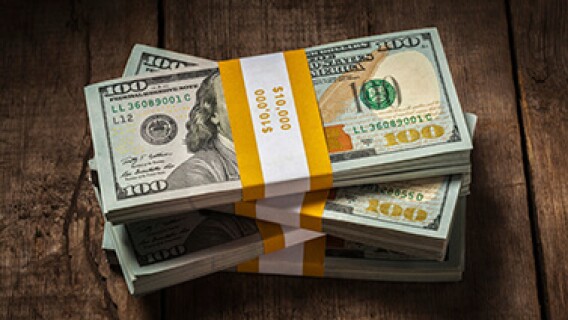Central banks are some of the most profitable entities in the world. And believe it or not, you can actually own central bank shares.
It’s good to be king. Or, at least a central banker. Central banks, like the Federal Reserve System of the United States, control a country’s money supply and have a strong influence on local interest rates, regulations, financial stability, payments systems and other critical national monetary matters. One of their most powerful tools is their ability to create money, literally from nothing, merely by running their digital or paper printing presses.
With such exceptional power, central banks usually produce exceptional profits. Last year, the U.S. Federal Reserve System, or “the Fed” as it is commonly called, generated profits of nearly $89 billion. That would make it the most profitable “company” in the world, edging out Saudi Aramco’s $88 billion in profits, and sharply higher than Apple’s $55 billion, according to Fortune’s Global 500 List for 2020.
[text_ad]
Central Bank Shares that You Can Actually Buy
Unlike commercial banks, which are owned by public shareholders, nearly all central banks are branches of their national governments. As such, investors have no ability to sit side-by-side with these profit powerhouses. However, there are a few central banks that do have publicly-traded shares, including the Swiss National Bank (Schweizerische Nationalbank), the Bank of Japan (????), the Bank of Greece (??????? ??? ???????) and the National Bank of Belgium (Banque nationale de Belgique).
These publicly-traded central banks can produce immense profits just like their government-owned peers. The Swiss National Bank (SWS: SNBN) produced $23 billion in profits last year, while the Bank of Japan (TSE: 8301) generated net income of $15 billion in its most recently completed fiscal year. Smaller central banks like the National Bank of Belgium (ENXTBR: BNB), with $983 million in profits, and the Bank of Greece (ASTE: TELL), with net income of $789 million, were no slouches either. And central banks are highly unlikely to go bankrupt.
Stock price performance can be both dull and exciting. The Bank of Japan’s price nearly tripled in 2013, then steadily slid by 70% until doubling earlier this year. Shares of the Swiss National Bank were flat from 2011 to mid-2016, then surged 6x over the next two years, but have been relatively tame ever since.
Like becoming king, buying shares of a central bank is not always easy and comes with caveats. Trading volumes can be low and the shares typically trade only on their in-country stock exchanges. Dividends may be scarce. The Swiss National Bank’s shares have a dividend yield of about 0.3%, although the National Bank of Belgium’s shares currently yield 4.5%. Also, shareholders may hold very limited or no voting rights.
For investors willing to put up with the inconveniences, owning shares of a central bank can provide financial rewards and the feeling of being, on paper at least, among the most powerful investors in the world.
[author_ad]

